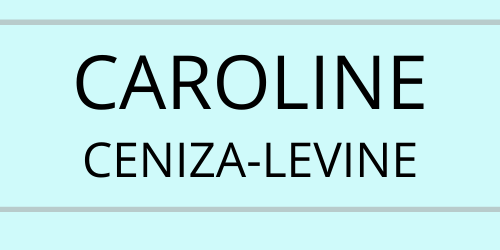In general, I heartily encourage people to accept networking invitations. For example, a friend asks if they can introduce you to someone you should know. Or, you get a LinkedIn invitation from someone you don’t know. Or, someone you meet at a conference suggests you grab coffee sometime, and they actually contact you after the event to schedule the coffee date.
Even if you are not sure why the friend is connecting you, or why you’re getting the LinkedIn invite, or what you’ll discuss over coffee, you may find the potential for collaboration, as you learn more. Meeting new people and expanding nascent relationships can lead to opportunities down the road. (You don’t want to be relegated to just the network you have now, especially if you want to change careers.)
Furthermore, networking is not just for people in active job search mode. If you are happily employed, you can still benefit from hearing what others are working on and what other companies are doing. You might get an idea that solves a problem at work and accelerates your career. You might hear of an opportunity even better than where you are. Besides, the best time to network is when you don’t need anything.
That said, we all have limited time and capacity for coffee. There will always be other people and activities vying for our attention. Networking, while important, may not be the best use of our resources, even for job seekers. Here are three reasons to turn down a networking invitation:
1 – The invitation is completely off-target
While I did say that you don’t need to know 100% how a prospective networking contact fits into your interests or objectives, you should see some potential. Is this person in and around the industry or functional areas where I am working or targeting? Can this person help me advance, hire me or refer me to job leads? At the very least, is this someone that I want to get to know?
Networking should never be only about who can help you (that point of view is narrow and short-sighted). However, you at least want a genuine interest in the people in your network. If you get an invitation that is so far afield from your interests and goals that you are confused or even dreading the meeting, decline and spend the time you saved figuring out why you are not attracting the right people.
2 – You really need to follow up with people you already know, rather than meet more people
Most people don’t allocate enough time to meet new people, but some actually do it too much. They collect lots of acquaintances, and it becomes like busy work – you feel busy, but you’re not really accomplishing anything. Answering every call, attending every mixer, and accepting every invite could lead to haphazard networking that doesn’t drive towards anything substantive.
Networking is not just about meeting more and more people, but also about deepening relationships over time. If you have a lot of contacts already, and you haven’t reconnected with many for a while, your time may be better spent following up with your existing contacts, rather than adding more. The ideal networking schedule includes both meeting new people and expanding existing relationships. If you find yourself lopsided with new, superficial contacts, it’s time to focus on quality, not quantity.
3 – There are more urgent things to do now
There are life events that throw your schedule off balance. I once coached at a financial firm during the 2009 market crisis, and work/life balance went out the window as the company was fighting for its existence (it survived). You, too, might encounter an urgent situation that forces you to table your regular good habits, like networking. If you unexpectedly lose your job, your job search becomes urgent, and while job search very much involves networking, it’s the focused kind. More opportunistic invitations need to take a back seat.
Once your job search is underway, with leads in the pipeline, you may decide to revisit these invitations. Or, you might wait till you have landed in your new job. When there is an urgent need, only the most relevant activities take priority, and even good habits like expanding your network should be set aside.
Most people don’t do enough networking, so please don’t think you’re off the hook. You probably should accept more invitations than you decline. However, not all networking is good networking. Don’t get derailed from your goals. Don’t network only superficially without following up. Don’t network if there are more time-sensitive concerns. Networking as a whole is necessary, but any single meeting is still your choice. Choose proactively.
A version of this post originally appeared in my column for Forbes.com.






